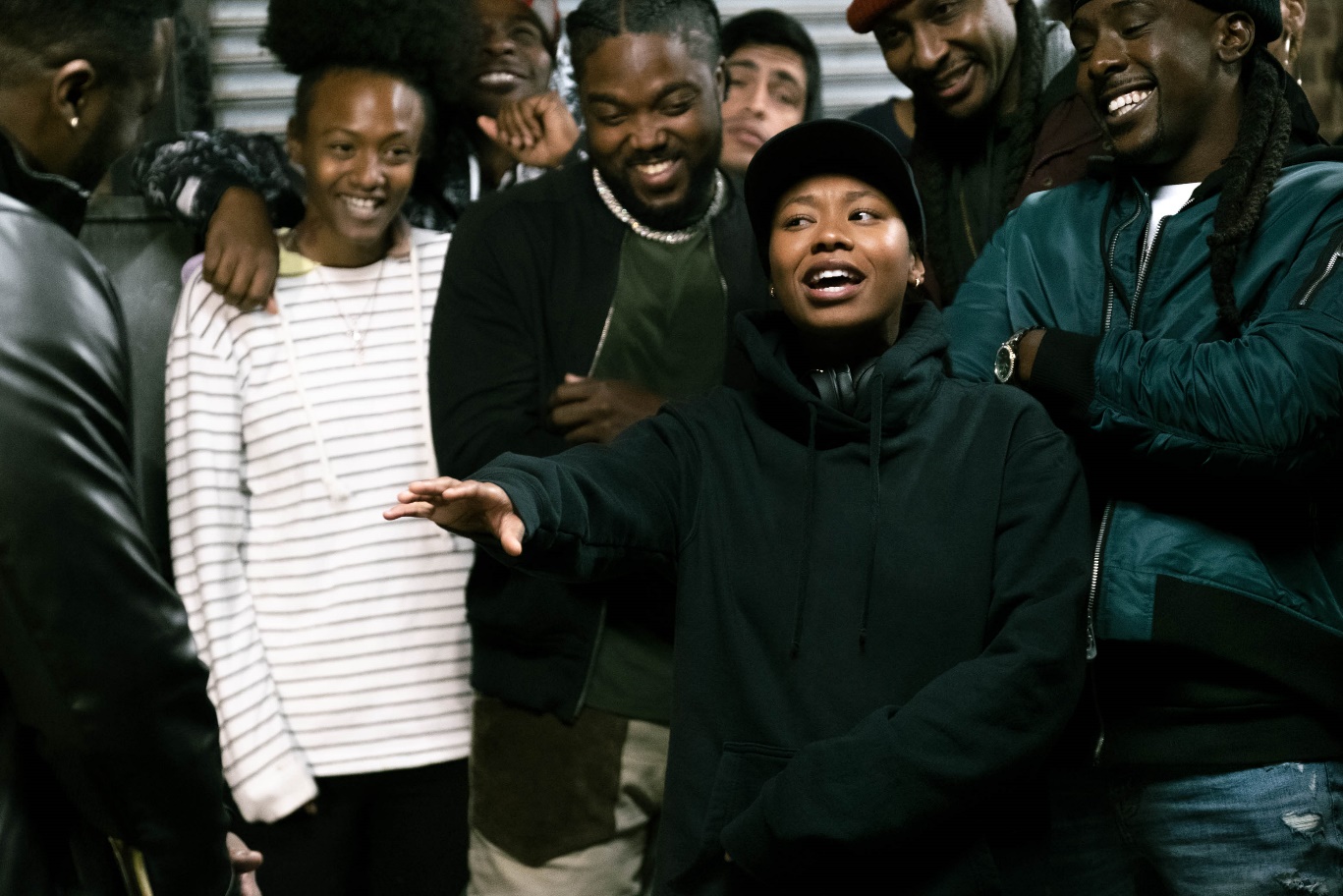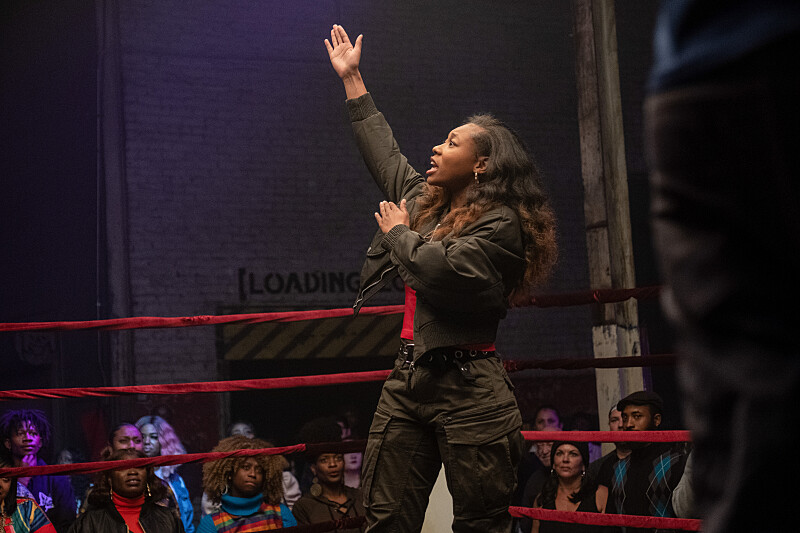
In the early 2000s, Sanaa Lathan broke through as one of the most appealing young performers in a new breed of romantic comedy that bucked the business-as-usual cycle of the day. Before that, it had seemed as if romantic-comedy stars had to be white by decree—and suddenly, there were wonderful new films featuring new faces like Lathan’s, who was terrific in movies like Love & Basketball and the interracial romance Something New. It may seem like nothing now, but at the time, it was as if the heavens had opened up. Movies seemed to be headed toward new and better days.
In terms of opportunities for Black filmmakers and performers, change hasn’t happened as quickly or as thoroughly as, in the early 2000s, we thought it might. But Lathan has stayed on the scene as an actor, and now she’s helping to push the door open further for a younger generation with her directorial debut, On the Come Up. Brianna “Bri” Jackson, played by charming newcomer Jamila Gray, lives with her mother Jay (Lathan) and her older brother Trey (Titus Makin Jr.) in the fictional city of Garden Heights, which a title card at the beginning of the film tells us is “somewhere in America”—that could mean California or New Jersey, but it’s not necessarily the kind of place where dreams come true.
Read more reviews by Stephanie Zacharek
Still, 16-year-old Bri hangs onto hers: her late father was the most famous rapper ever to come out of Garden Heights, and she knows she’s gifted enough to walk in his footsteps. Her Aunt Pooh (played by the always effervescent Da’Vine Joy Randolph), who’s managing her nascent career, gets her into a local rap competition—“the Hunger Games of hiphop” is how Bri describes it, and it’s where her dad got his start. But once the spotlight is on her, Bri chokes, undone by the aggressiveness of her opponent. In the next few days, her life goes from bad to worse: Bri makes extra money peddling candy out of her backpack at school, but because she’s one of only a few Black students, the school police suspect her of selling drugs; when she refuses to let them search her backpack, they knock her roughly to the ground, pinning her arms behind her back. The principal suspends her, unfairly. That same day, Bri learns that Jay, who’s three years sober after kicking a drug habit, has lost her job, meaning there’s no money to pay for food, rent or electricity.

That’s the setup for a type of story you’ve seen before, but Lathan—working from a script by Kay Oyegun, adapted from Angie Thomas’s popular young-adult novel—manages to keep it fresh. For one thing, the rules are different for a woman rapper: if her act isn’t tough enough, she might not draw an audience. While Bri’s style is muscular and poetic, there’s nothing gangsta about it, and an ambitious manager (played by Method Man) tries to turn her into something she’s not. On the Come Up is honest about all the things male artists can get away with, while women are left to cut their own path—though it also recognizes that making that fresh path is the better route to success.
There’s also a sweet but not necessarily smooth-sailing budding romance, between Bri and her longtime friend Malik (Michael Cooper Jr.). When these two kiss for the first time, we hear Bri’s thoughts in voiceover—“I’ve been wanting to do that since eighth grade”—and a beat later, Malik says out loud, “I’ve been wanting to do that since fifth grade.” It’s a witty touch, a nod to the way girls take their time in deciding who’s worthy of their affection. And the movie makes sure Bri’s other close friend, Sonny (Miles Gutierrez-Riley), has a chance at romance too: he finds it with Milez (Justin Martin), a rapper who has cultivated a smooth romantic image, but who knows his own heart and isn’t afraid to act on his feelings. On the Come Up is a thoughtful and generous-spirited entertainment, and a reminder of how hard it can be, when you’re young, to figure out who you really are. Every generation has to work that out for itself—but nothing can change unless they do.
More Must-Reads From TIME
- The 100 Most Influential People of 2024
- The Revolution of Yulia Navalnaya
- 6 Compliments That Land Every Time
- What's the Deal With the Bitcoin Halving?
- If You're Dating Right Now , You're Brave: Column
- The AI That Could Heal a Divided Internet
- Fallout Is a Brilliant Model for the Future of Video Game Adaptations
- Want Weekly Recs on What to Watch, Read, and More? Sign Up for Worth Your Time
Contact us at letters@time.com